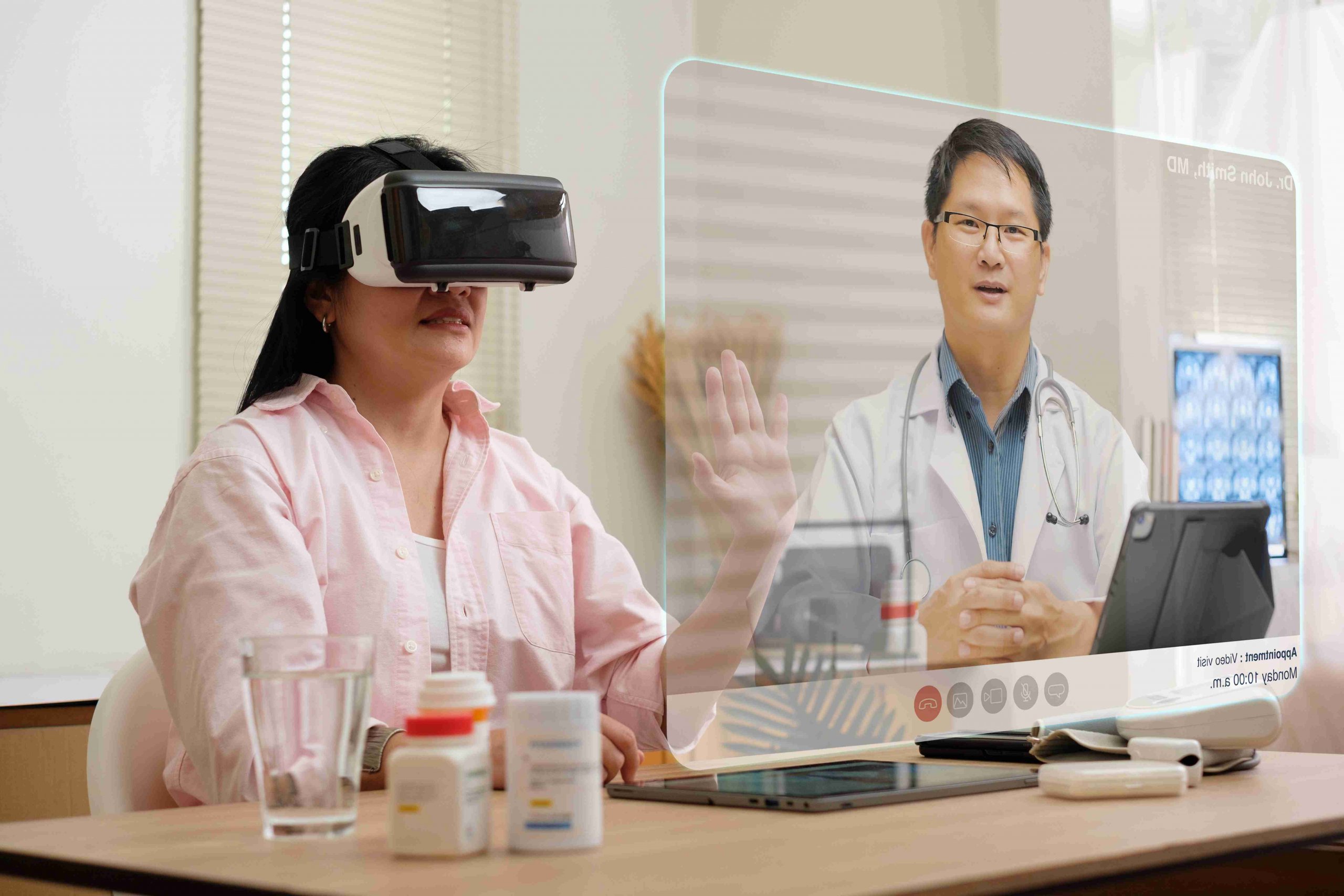
Khalifa University research paper investigates the applications, challenges and future directions for the metaverse in healthcare, wins IEEE best paper award
The post-pandemic era has seen a surge in the use of virtual healthcare services, leveraging emerging technologies to enhance patient care. A team of researchers from Khalifa University says the metaverse stands at the forefront of this digital transformation. It offers an immersive platform that can significantly enhance virtual healthcare delivery by providing more interactive and personalized patient care experiences.
Dr. Ahmad Musamih, Ibrar Yaqoob, Prof. Khaled Salah, Dr. Raja Jayaraman, Dr. Yousof Al-Hammadi, and Prof. Mohammed Omar collaborated with Cleveland Clinic’s Samer Ellahham to consider the applications, challenges, and future directions for the metaverse in healthcare.
The research team developed a novel metaverse framework to address existing challenges in healthcare. In their IEEE Consumer Electronics Magazine paper, they explored the potential applications of the metaverse in healthcare and discussed how different metaverse-enabling technologies can be integrated. The team also provided a system architecture for how such applications could be structured and organized.
Their paper was awarded best paper for 2023 by the IEEE Consumer Electronics Magazine.
“The healthcare industry is witness
ing a digital revolution propelled by Industry 4.0, where technology-driven innovation is adopted to replace legacy healthcare services,” Prof. Omar says. “The use of virtual healthcare services, such as telemedicine and telehealth, has become prevalent in the wake of the Covid-19 pandemic, which also accelerated the harnessing of disruptive technologies, such as the metaverse.”
While telemedicine and telehealth have become essential components of the healthcare landscape, they lack the depth of physical examinations and their effectiveness often depends on the patients’ ability to communicate their symptoms.. Concerns regarding data privacy and security also persist, making some patients hesitant to embrace these digital health solutions.
The research team believes the metaverse presents a unique opportunity to address these challenges. By integrating AI, blockchain, and distributed computing, the metaverse could improve diagnostic accuracy, enhance patient privacy, and offer a more engaging healthcare experience.
“The metaverse is an emerging concept that is constantly evolving, and its definition can vary based on the involved participants and the application it is intended for,” Prof. Salah says. “In general, the metaverse can be defined as a computer simulation that allows digital avatars of participants to interact among each other in a realistic, shared, and immersive life-like environment.”
For patients, home healthcare services within the metaverse could connect patients with Internet of Medical Things devices for real-time monitoring, while remote consultations could be facilitated through virtual environments. However, metaverse applications are not limited to the patient experience.
The research team highlight how the metaverse could revolutionize medical education by virtually placing students and trainers in simulated environments. Emergency departments at healthcare facilities would be able to virtually triage patients, potentially reducing unnecessary visits and improving resource allocation. For supply chain management, the metaverse could improve transparency, efficiency, and resilience by utilizing digital twins, AI and blockchain technology.
While the metaverse presents a revolutionary platform for healthcare, the research team recognize it is not without its technical challenges.
“The metaverse is still in its early stages of development, and like any other emerging technology, it is expected to face numerous technical hurdles,” Prof. Salah says. “First, the metaverse is not a standalone system and deploying and maintaining the infrastructure is expected to be very costly. The enabling technologies of the metaverse are also considered very complicated for average users, and in their current state, they’re complicated for professionals too. Finally, there are no standard for interfacing with metaverse applications now. Integrating them with legacy systems is expected to be burdensome.”
Still, the integration of the metaverse into healthcare signifies a paradigm shift toward a more interconnected, efficient, and patient-centric digital health ecosystem.
“As we delve deeper into the potential of the metaverse in transforming healthcare, it is imperative to address the technological, privacy, socio-ethical, and regulatory challenges that accompany its adoption,” Prof. Omar says. “Balancing innovation with these considerations is crucial to unlocking the metaverse’s full potential in enhancing healthcare.”
Jade Sterling
Science Writer
5 March 2024






